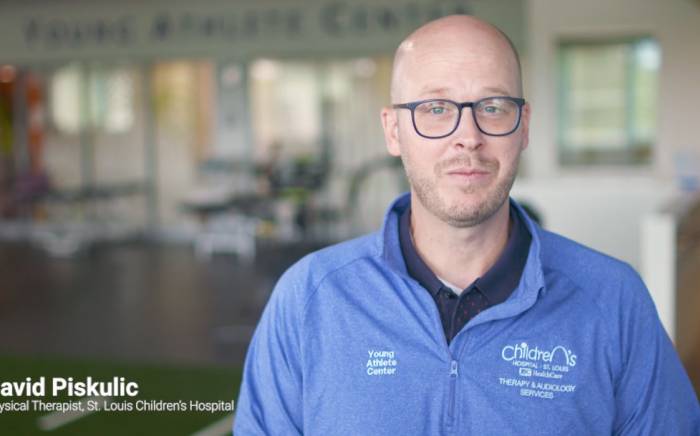What does patient experience mean?
Patient experience means more than just providing clinical excellence, which families expect. It is about each one of the moments you experience as you and your child are cared for by St. Louis Children’s Hospital. It also means your child’s care team:
- communicates effectively and clearly
- demonstrates teamwork
- includes the patient and their family as a critical partner in their child’s care
- treats patients and families with empathy, compassion and respect
- ensures a clean, welcoming and healing environment
Why do we measure patient experience?
When we consistently listen to the voices of our patients and families, we hold ourselves always accountable as a hospital team. This data ensure we continuously improve in how we serve patients and families.
How we measure:
Through a confidential survey after the patient is discharged, patients’ families are asked to provide feedback and rate the care their child received while a patient at St. Louis Children's Hospital. This includes questions about communication with their child’s nurses and doctors, overall teamwork and safety, comfort during their stay, how information was shared throughout the stay and in preparing to go home, and the environment of care. The survey is conducted by an outside firm that measures patient experience for thousands of hospitals nationwide.
A primary piece of feedback we measure is the response by the patient family on their likelihood to recommend our hospital to their friends or family. This measurement is called a Net Promoter Score. To get the score, a single question is asked: “Using a scale of numbers from 0-10, where ‘0’ is Not at all Likely and ‘10’ is Extremely Likely, how likely is it that you would recommend the [provider/hospital/practice] to your friends or family?”.
Responses of 9-10 are considered “promoters”. These people are loyal and enthusiastic, likely to remain with us over time, and refer us to others. Scores of 7-8 are considered “passives”. They are satisfied for now, but the likelihood for repeat visits or referrals to others is lower than that of promoters. They may seek care elsewhere. Anyone giving a 0-6 score are considered “detractors”. These people are unhappy, unlikely to seek us out for care again, and may even discourage others from receiving services from our organization. Their criticisms diminish a company’s reputation.
To calculate the NPS score, the percentage of patients that responded as a detractor are subtracted from the percentage of patients that responded as promoters. This is considered a proven loyalty metric and is used within health care as well as many other companies. This response helps us understand whether a patient family is likely to return for future care and whether they would recommend us to their friends and family for health care services.
This is about trust. Trust of the provider, practice, program and service is the number one reason why patients will return or recommend BJC to others. It is essential that we continue our compassionate focus to care and strive to deliver health care excellence to every patient, in every setting, every time. Survey recipients also can share their voice by giving comments on their hospital experience.
Examples of what we are doing to improve:
- Including patient and family voice in decisions about hospital care, programs, and services. We welcome your partnership through our Patient Partner Program
- Educating all our team members on the experience we will create for those in our care.
Recognizing our hospital team members on an ongoing basis for outstanding efforts in providing safe care, effective care and exceptional service.









